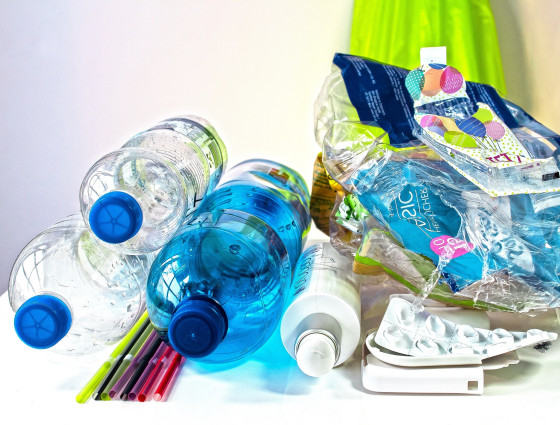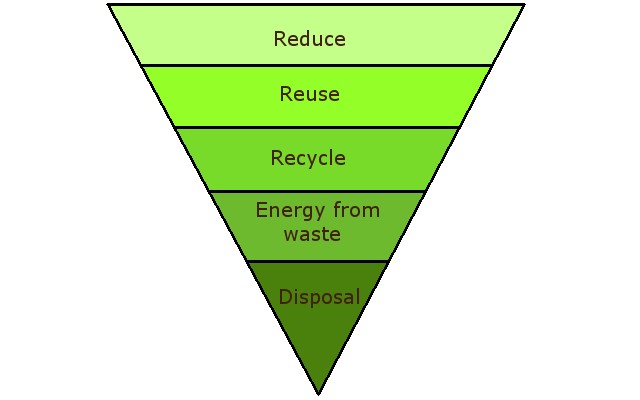
The waste hierarchy
The Waste Hierarchy ranks waste management options according to what is best for the environment.
What is the waste hierarchy?
The waste hierarchy gives priority to preparing it for reuse, then recycling and recovery and last of all disposal for example landfill.

The waste hierarchy stages
Stage 1: Prevention
- using less material in design and manufacturing
- keeping products for longer and reuse where we can
- use less hazardous materials
Stage 2: Preparing for re-use
- checking, cleaning, repairing and refurbishing items or spare parts
Stage 3: Recycling
- turning waste into a new substance or product
- consider composting if it meets quality protocols
Stage 4: Other recovery
- anaerobic design digestion
- incineration with energy recovery
- gasification and pyrolysis to produce energy such as fuels, heat and power
- material from waste and some backfilling
Stage 5: Disposal
- landfill and incineration without energy recovery

 Facebook
Facebook X
X Email
Email WhatsApp
WhatsApp Messenger
Messenger